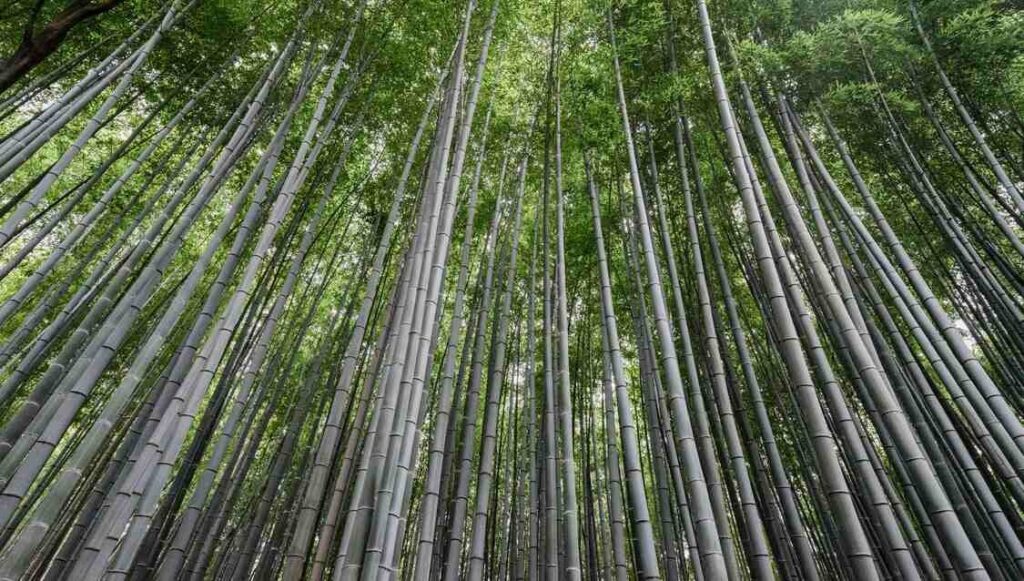 Bamboo forest – credit Bady Abbas, via Unsplash
Bamboo forest – credit Bady Abbas, via Unsplash
GNN has reported previously on how versatile bamboo is for construction and craft, so it maybe shouldn’t be a surprise that researchers in China have found a way to turn this miracle plant into plastic.
While many biodegradable materials have already been developed for replacing lighter, flexible plastic, durable or rigid plastic replacements are few. The kinds of plastic used for tools, car interiors, and appliance exteriors have few if any biodegradable replacements.
Enter Dawei Zhao at Shenyang University of Chemical Technology in China’s far northeast, who has developed a method for turning cellulose from bamboo into a rigid yet biodegradable plastic that outperforms not only alternative biodegradable options, but plastic itself for mechanical strength and thermo-mechanical properties.
“Bamboo’s rapid growth makes it a highly renewable resource, providing a sustainable alternative to traditional timber sources, but its current applications are still largely limited to more traditional woven products,” Zhao told New Scientist.
His method takes cellulose from bamboo and subjects it to zinc chloride and a simple acid to break up the complex polysaccharide bonds that hold this plant fiber together. Next they add ethanol into the soup of smaller molecules, and from that derive a plastic for use in injection, molding, and machining manufacturing techniques.
One major drawback is the bamboo plastic’s inflexibility, which limits its incorporation into the full gamut of products that petroleum-based plastics can fulfil. On the other hand, however, these are often the plastics that remain in the ecosystem longest, and are the hardest to recycle. Therefore replacing them still represents a valuable contribution to reducing the overall plastic burden in the environment and waste streams.
MORE BAMBOO HEADLINES:
Zhao and his team published a paper on the process and properties of the bamboo plastic in Nature, including in which is a cost-analysis that finds the bioplastic’s recyclability emerges as a value that sees it attain cost-competitiveness with conventional plastic.
They also report that it fully breaks down in the soil in 50 days.
SHARE This Brilliant Bamboo Science With Your Friends On Social Media…

